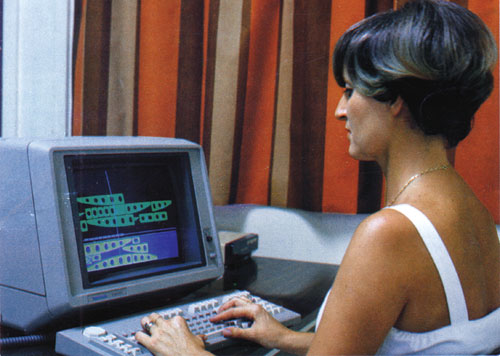THE EARLY HISTORY OF SOFTWARE

Anyone with a computer, be it a desktop computer or a laptop, have surely heard of software. As opposed to hardware, which is physical, software is all its core intangible information that is processed by a computer system. This includes everything from computer programs to libraries, as well as data that might not necessarily be executable. Intangible as they might be, software is an incredibly vital aspect of a computer system, as a computer cannot possibly run without it as well as hardware in place. Just like how you cannot use a computer without a monitor, it is also unrealistic for you to expect a computer running without any software in it.
While in the past software was created using low-level assembly or programming language, nowadays a vast majority of it are developed and written using a programming code that is so much more similar to a natural language as we know it. This language, also known as a high-level programming language, makes it so much easier for a programmer to write a software for consumers to use.
Although software is essential to every single computer in existence, a lot of people are unaware of its history, which is rather unfortunate as its creation practically give birth to some of the biggest STEM fields in modern history, which are computer science as well as software engineering. It might surprise quite a few people to realize that the first set of algorithm in existence was written by a woman. Ada Lovelace, the daughter of the famous poet Lord Byron, created an algorithm for Charles Babbage’s early model of computer known as the Analytical Engine back in the nineteenth century, although it was not until the World War II that the modern theory on software came into being thanks to an essay written by Alan Turing in 1935. Alan Turing, often hailed as the father of modern computer science and who is well known as the genius behind the codebreaker machine Enigma that helped the Allies win the war against the Axis Power, is also attributed to the creation of the computer science and software engineering field as we know it.
After that, while it takes quite a long time before software and computers in general are getting massive attention from the public, its development continued in the academic field. A decade after Turing wrote his famous essay and a few years after the World War II was finally over, the first software held in electronic memory was run and executed successfully in 1948, in an experiment done by the University of Manchester. It was not until the late 1960s that software got into the mainstream market, however. More and more hardware manufactures put bundled software into their products, resulting in the age of commercial software that flourishes until today. Unfortunately, the rise of commercial software also gives way to its piracy. This problem, which included copyright infringement as well as unauthorized copying of commercial software, became so bad so quick that Bill Gates made an open letter to address it in 1976.







